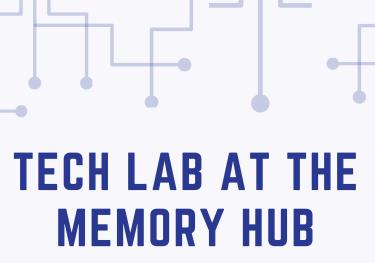A new study out of the UW School of Social Work introduces the development of a new tool to promote shared decision-making around technologies used in dementia home care. Participants in this research were recruited through the UW Alzhiemer's Disease Research Center.
Technology is one way to help support adults living with dementia at home. Apps can give medication reminders or keep track of health information and doctor’s appointments. Robotic assistants provide users with digital cues to help a person get dressed and navigate the home. Smart home systems can control kitchen appliances. In the realm of social connection, video conferencing lets caregivers virtually enter a room and interact with their loved one. Home technologies can help make family life easier and safer and promote independence.
As Clara Berridge, PhD, MSW, associate professor in the UW School of Social Work, would remind us, it’s important to consider that older adults and people living with memory loss have their own preferences and feelings about the technologies used in their homes, particularly those devices that collect information about them to help a caregiver monitor their activity and location. She thinks of the older adult who reported rushing in the bathroom, because they knew that sensors were timing them.

Clara Berridge, PhD, MSW
“These technologies can affect a person’s behavior and wellbeing,” says Berridge, who has studied the ethical and policy implications of digital technologies used in care for more than 10 years. In field interviews with dyads (a term for an older adult together with their spouse or family caregiver), she has found that older adults are often left out of decisions about home care technologies.
“In one study, I found that adult children often thought it was hard to communicate what one of these monitoring systems did so that they could involve their older parent in a decision to use it,” says Berridge. “It became clear over the course of multiple studies with dyads that something was needed to help people have conversations about technologies before they are installed. Otherwise, it's a recipe for disempowering monitoring practices.”
Berridge, in collaboration with the UW Clinical Informatics Research Group with funding from the National institute on Aging, developed Let's Talk Tech ©, a research-based communication and education tool in the form of a web app to help families talk about dementia home care technology choices. Its purpose is to facilitate communication and sharing of what people want and don’t want around different features of home technology.
In a study recently published in the Journal of Medical Internet Research Aging, Berridge and her team piloted the use of Let's Talk Tech © in a sample of 29 people living with mild Alzheimer’s disease and their family care partners, recruited through the UW Alzheimer’s Disease Research Center's clinical core or research registry. The team evaluated participant’s feedback on the quality and ease of use of this self-administered tool.

Image: Bagi1998 via Canva.com
Most of the participants felt that the intervention was easy to use, the right length, balanced in its presentation of information, and helpful. The study suggests that the Let’s Talk Tech intervention is a feasible tool for promoting shared decision-making in families about technologies used in dementia care at home.
“Clinicians involve people with dementia in decision-making about treatment planning and end-of-life decisions. I see technology preferences no differently,” says Carolyn Parsey, PhD, assistant professor of neurology at UW Medicine who leads the Tech Lab at the Memory Hub. “I really appreciate Dr. Berridge’s work to maintain person-centered care in the technology space. Encouraging participation in decision making to the degree that a person with dementia is able is an important aspect of preserving autonomy and honoring their preferences. Empowering people with dementia to participate in conversations about their care, including their comfort with different types of technology, is a fantastic expansion on the principles of person-centered care.”
The research team shares some of the feedback from study participants about whether the intervention was worthwhile, even though it can be difficult to discuss the need for adaptions in the future:
“And by having these conversations, makes it easier for both of us, because then we're not guessing.” (care partner)
“It's true and, and the more we're able to talk about it, the more comfortable it is, that okay, this is just how things are now and it's okay.” (person living with dementia).
Berridge’s team has another paper reporting promising preliminary efficacy findings under review from the pilot study. They found significant improvement in each desired outcome, including helping care partners to feel more prepared to make decisions about technologies and understand the actual preferences of their loved one. Looking forward, they hope to test the effectiveness of this tool in a clinical trial with the National Institute on Aging in a large and more diverse participant sample.
Naturally, people have different comfort levels about technologies that collect information about us in order to provide some service. Berridge recommends two resources for those interested in learning about the latest home care technologies and their potential pros and cons:
- Aging and Health Technology Watch -Industry market trends, research, and analysis by Laurie M. Orlav
- Caregiver Tech Tool Finder – Senior Navigator and Lindsay Institute for Innovations in Caregiving
___
Funding for this study comes from NIA grants K01AG062681 (Clara Berridge) and P30AG066509 (UW ADRC).
Citation:
Berridge C, Turner N, Liu L, Karras S, Chen A, Fredriksen-Goldsen K, Demiris G
Advance Planning for Technology Use in Dementia Care: Development, Design, and Feasibility of a Novel Self-administered Decision-Making Tool. JMIR Aging 2022;5(3):e39335.







